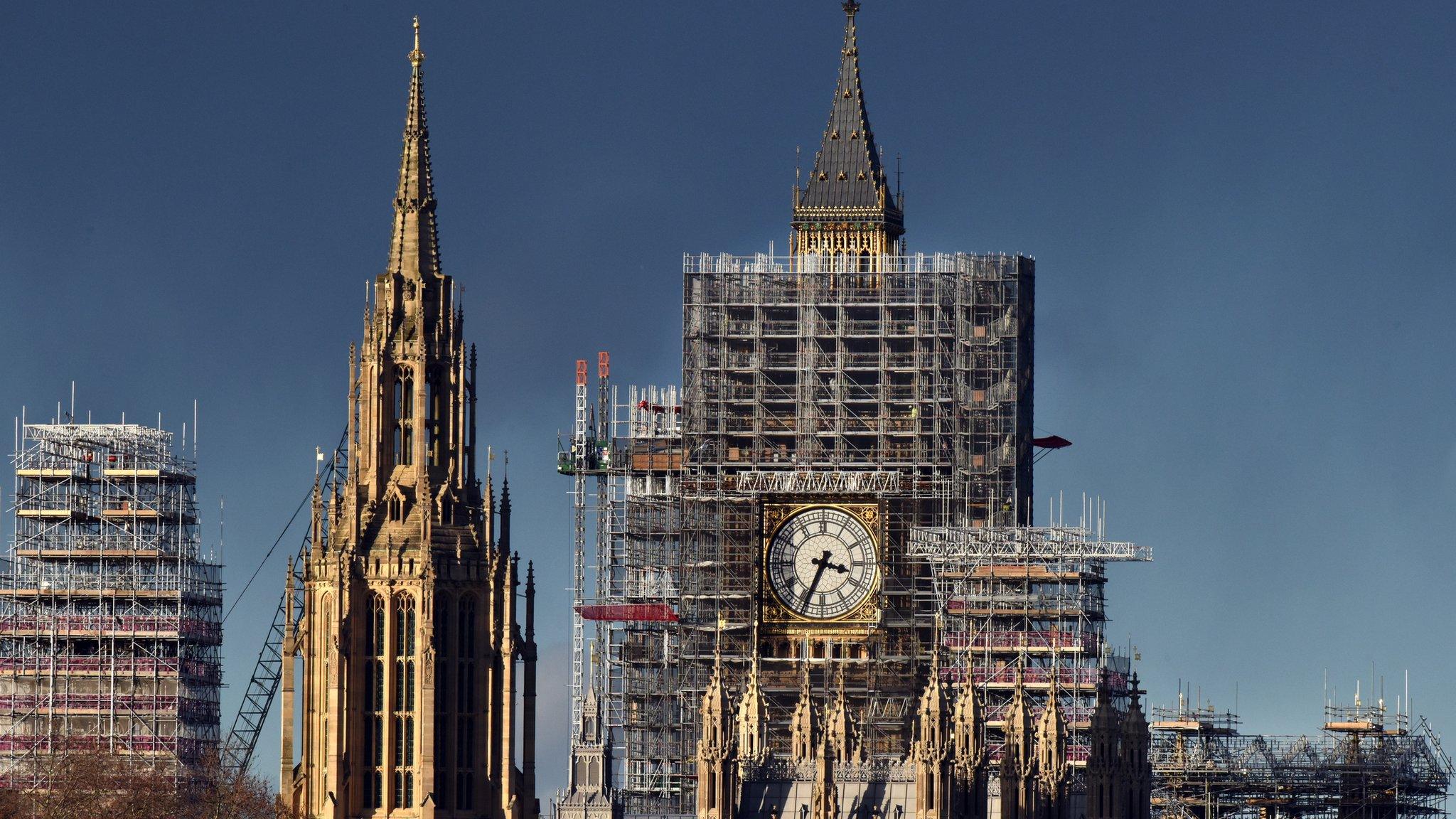Boris Johnson's suspension of Parliament prompts assembly recall
- Published
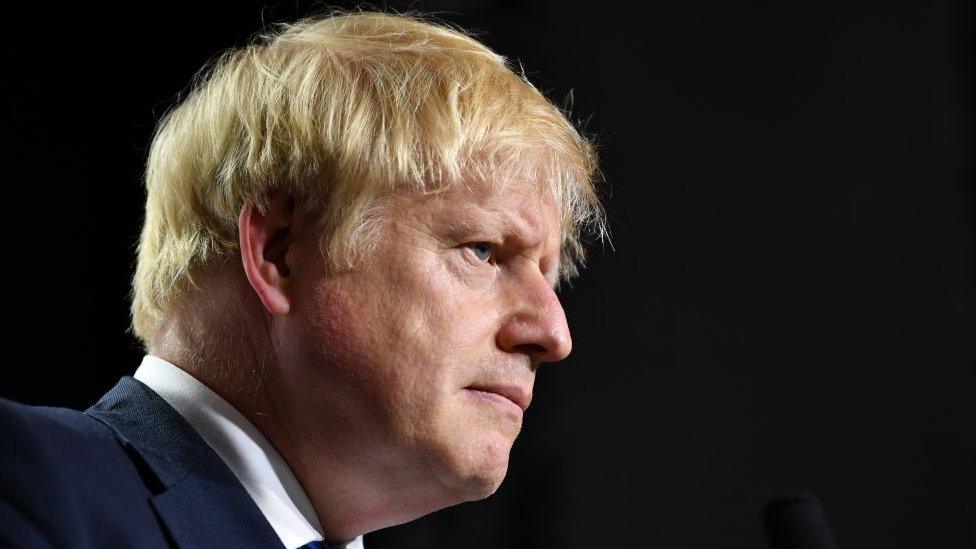
The prime minister said he did not want to wait until Brexit before "getting on with our plans to take this country forward"
AMs are to be recalled from their summer break after Boris Johnson asked the Queen to suspend Parliament.
Welsh Pro-EU politicians have reacted angrily to the prime minister's decision, which could make it difficult for MPs to stop a no-deal Brexit.
First Minister Mark Drakeford said the "constitutional crisis which now faces Wales" meant AMs needed to be recalled.
But Welsh Tory assembly leader Paul Davies said the prorogation of Parliament was normal procedure.
MPs are due to return from their own summer break next week, but the PM's request means there will be less parliamentary time in the run up to Brexit day, on 31 October.
The assembly's recess was due to end on 17 September, but AMs will now hold a day of debate in the Senedd on 5 September.
Agreeing to the request for the assembly recall from Mr Drakeford, presiding officer Elin Jones said: "We are in uncharted constitutional territory.
"It is a matter of parliamentary principle that, as the UK Parliament reconvenes next week, AMs should also be afforded the opportunity to speak for their constituents on this issue of great significance."
The Welsh Assembly has no power over Brexit but can pass a motion on its views. The recall was backed by Welsh Labour and Plaid Cymru, but not the Welsh Conservatives or the Brexit Party.
Allow X content?
This article contains content provided by X. We ask for your permission before anything is loaded, as they may be using cookies and other technologies. You may want to read X’s cookie policy, external and privacy policy, external before accepting. To view this content choose ‘accept and continue’.

Former Welsh Conservative assembly leader Andrew RT Davies said the recall "will achieve nothing". He said the record of proceedings may as well be copy and pasted with a "different date on it".
Brexit Party group leader, Mark Reckless, said: "We should stick to our knitting and not pretend we are Westminster MPs."
Asked what the debate will achieve, Plaid leader Adam Price stated AMs have the power to "shame" the prime minister: "That's a pretty powerful tool in any democracy: to call him out".
On Wednesday the Queen agreed to prorogue Parliament no earlier than 9 September and no later than 12 September.
The suspension will end on 14 October when the Queen's Speech - which sets out the new laws the UK government wants to make - will be held.
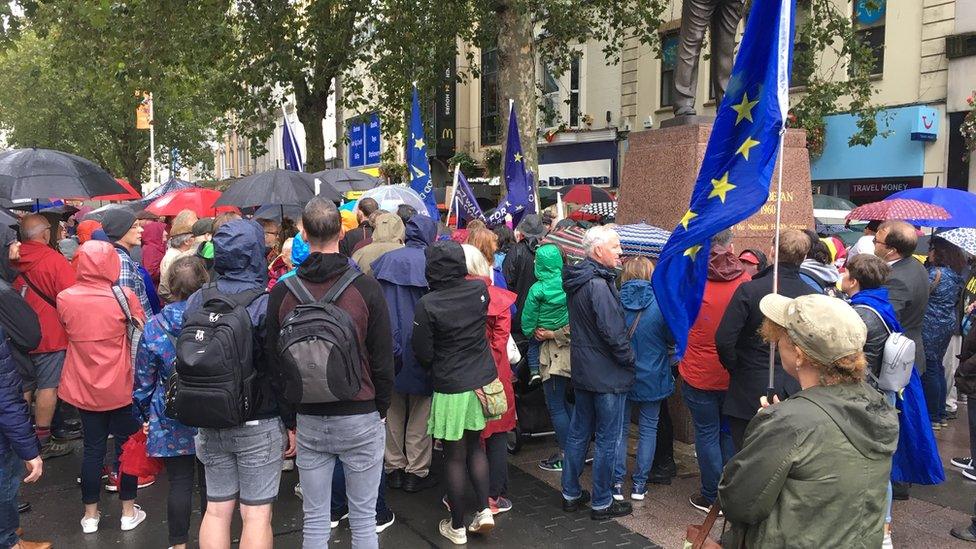
A protest against the prorogation was held in Cardiff city centreon Wednesday
Mr Johnson said he did not want to wait until after Brexit "before getting on with our plans to take this country forward", and insisted there would still be "ample time" for MPs to debate the UK's EU departure.
Opposition MPs had agreed to work together to try to pass a law to rule out a no-deal Brexit, which Mr Drakeford and others warned would cause major economic damage to Wales.
The MPs will now have less time to try to pass the legislation.
Mr Drakeford said the prime minister "fought a referendum campaign to put power back in the hands of Parliament" and now wanted "to close the doors on our democracy".
"The Leave campaign claims are unravelling," he said, adding it was time for a further referendum on EU membership.
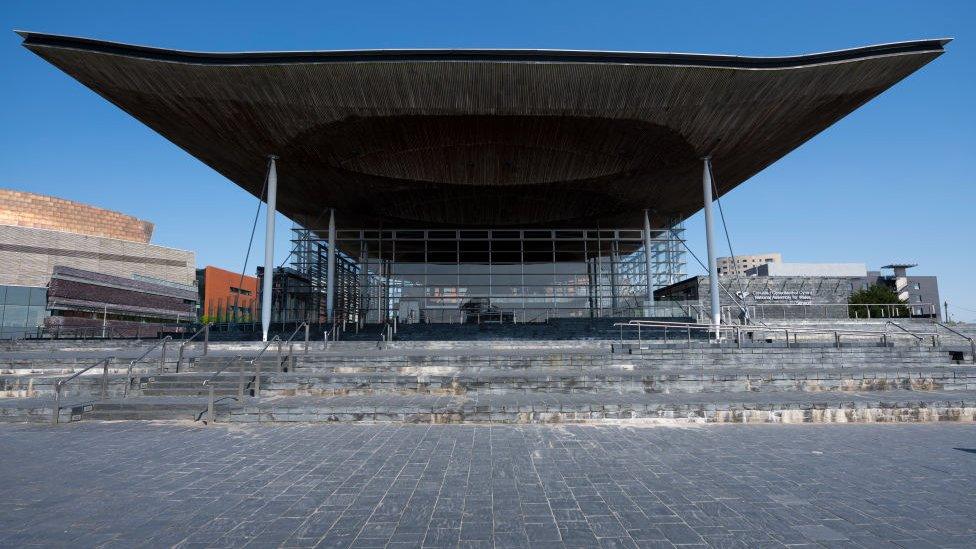
Assembly members will return to the Senedd early from their summer recess
Plaid Cymru Westminster leader Liz Saville Roberts said the suspension of Parliament was "a move that you would expect from an autocratic ruler [rather] than the prime minister of a modern democracy".
Welsh Liberal Democrat leader Jane Dodds argued that "by shutting down Parliament" Mr Johnson was "shutting out the public and their voice".
But former Brexit minister and Vote Leave campaigner David Jones said a "considerable amount of hysteria was being cynically generated".
There was a broad welcome from Brexiteers outside of the Conservatives, including from UKIP AM Neil Hamilton who hailed the suspension as a "brave and welcome move".
Tory AM and former deputy presiding officer David Melding said: "Parliament is partly to blame for dithering for so long, but that is not a justification for arbitrary and unscrutinised executive action."


First Minister Mark Drakeford said the claims of Leavers were "unravelling"
Analysis by Felicity Evans, BBC Wales political editor
Parliament is usually suspended pending a Queen's Speech and arguably one is due, given that Parliament has been sitting for an unusually long time and we have a new PM who wants to push ahead with his domestic agenda.
But, the timing of this suspension with Brexit looming at the end of October and the length of it, which scuppers any plans MPs might have had to veto the usual three week recess during party conference season, is very controversial.
While the Welsh Government explores legal options, Welsh Remainer MPs look ahead to getting back to Westminster next week.
Anna McMorrin, the Labour MP for Cardiff North, told me they have five days next week to stop a no-deal exit from the EU. Another MP told me: "There is a plan, but I'm not telling you what it is."
But can you pass legislation through both houses of Parliament in just five days? "Where there's a will, there's a way," they replied.
- Published28 August 2019
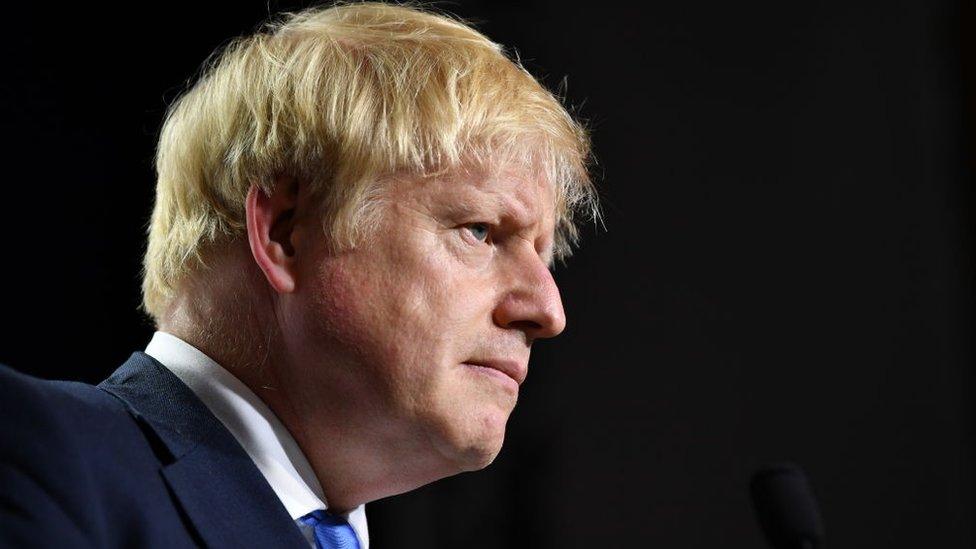
- Published8 October 2019
